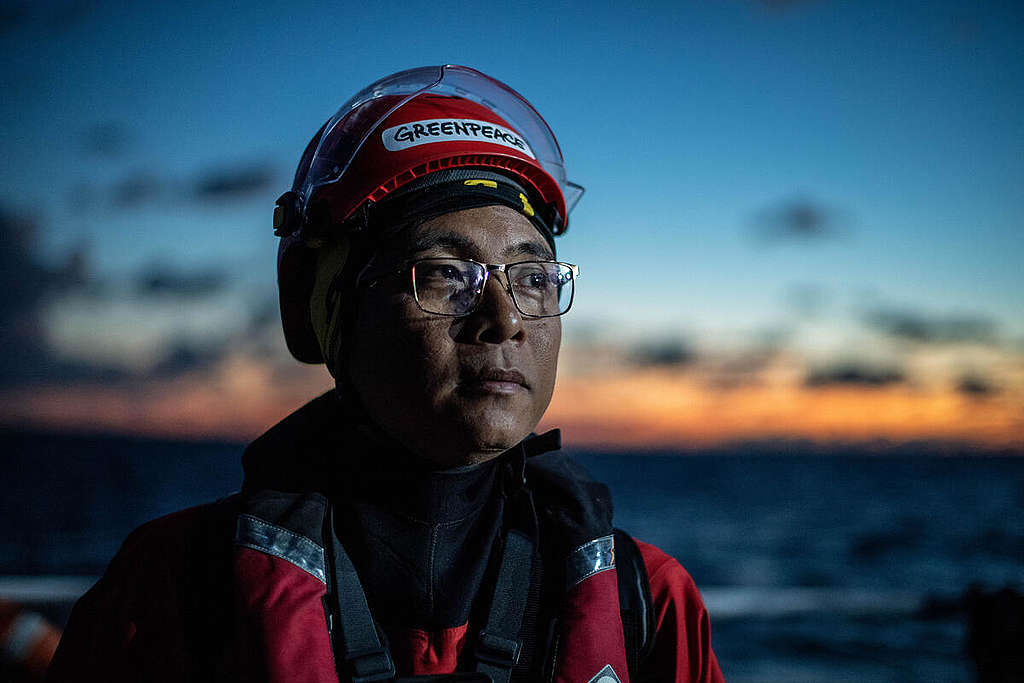 Greenpeace activist Yeb Sano preparing before action to board and occupy Shell platform en route to major oilfield with message: ‘STOP DRILLING. START PAYING.’ © Chris J Ratcliffe / Greenpeace
Greenpeace activist Yeb Sano preparing before action to board and occupy Shell platform en route to major oilfield with message: ‘STOP DRILLING. START PAYING.’ © Chris J Ratcliffe / GreenpeaceIn 2013, as I spoke at COP19’s global climate talks in my role of climate negotiator for the Philippines, I had no idea if my brother was alive. Super Typhoon Haiyan had ripped through my country just three days before and my home town, Tacloban City, was ground zero. Many loved ones, including my brother, went missing.
It wasn’t until after my speech that I learned he had survived.
But none of us were unscathed. My brother’s best friend and his entire family perished. After emerging from the wreckage of his life, my brother had to carry bodies to mass graves. He remembers the exact number of people he carried: 78.
More than 6,000 people died in that one typhoon and nowadays, we face them every single year. When you visit graves in the Philippines, many headstones have 10 or more names on them.
Two months ago, I was on my way to the COP27 global climate talks preparing to fight, once again, for countries around the world to take responsibility for the climate crisis. To urge action from the wealthiest polluters to pay up for loss and damage their emissions have caused, and for the decades of chaos and tragedy they have created.
In the Philippines, where I live, the climate crisis has escalated faster than we could have imagined, with catastrophic typhoons, super-charged by the warming of the planet, upending and destroying people’s lives.
Against all expectations, at COP27, a loss and damage fund was agreed, to help climate-hit countries. The pressing question now is who will pay into it.
That’s why last week, three months after the summit, I stood in a small boat in the Atlantic oceans, north of the Canaries, chasing a huge vessel carrying a 34,000-tonne oil platform. With this enormous piece of kit, Shell is planning to unlock eight new oil wells in the North Sea and potentially open up access to new fields too.
In the end, I didn’t manage to make it on board, but four other Greenpeace activists did. They are, right now, peacefully protesting against the global climate devastation caused by Shell and the wider fossil fuel industry.
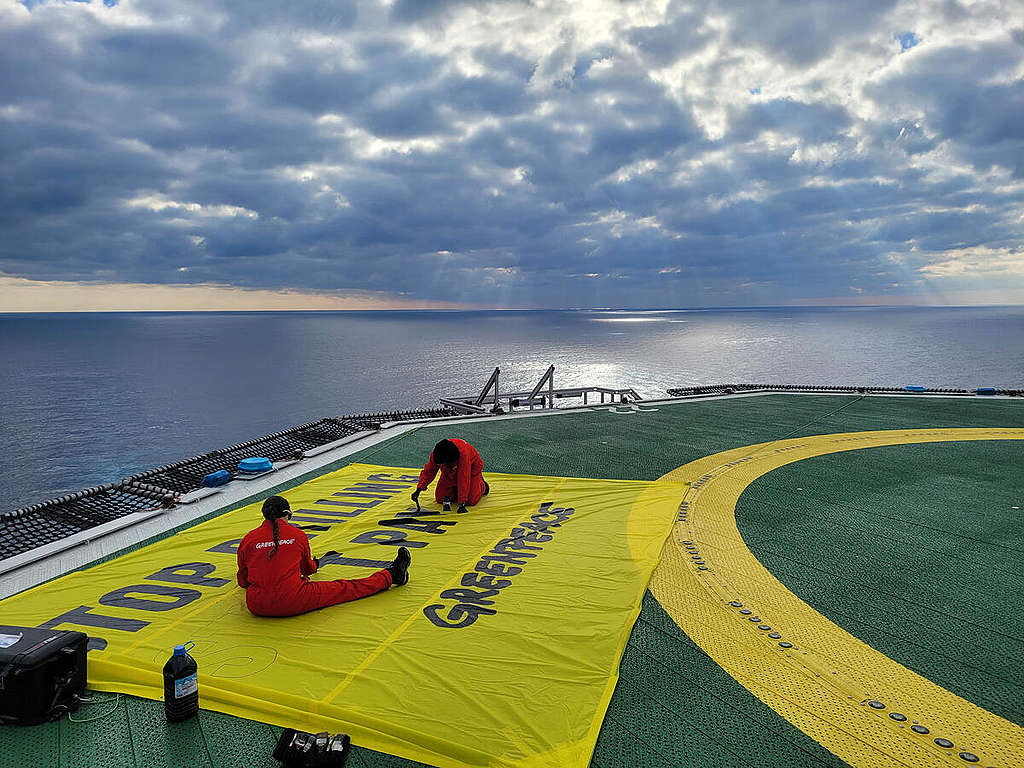 Climate Justice activists painting a banner on the heli-deck of a Shell oil platform © Greenpeace
Climate Justice activists painting a banner on the heli-deck of a Shell oil platform © Greenpeace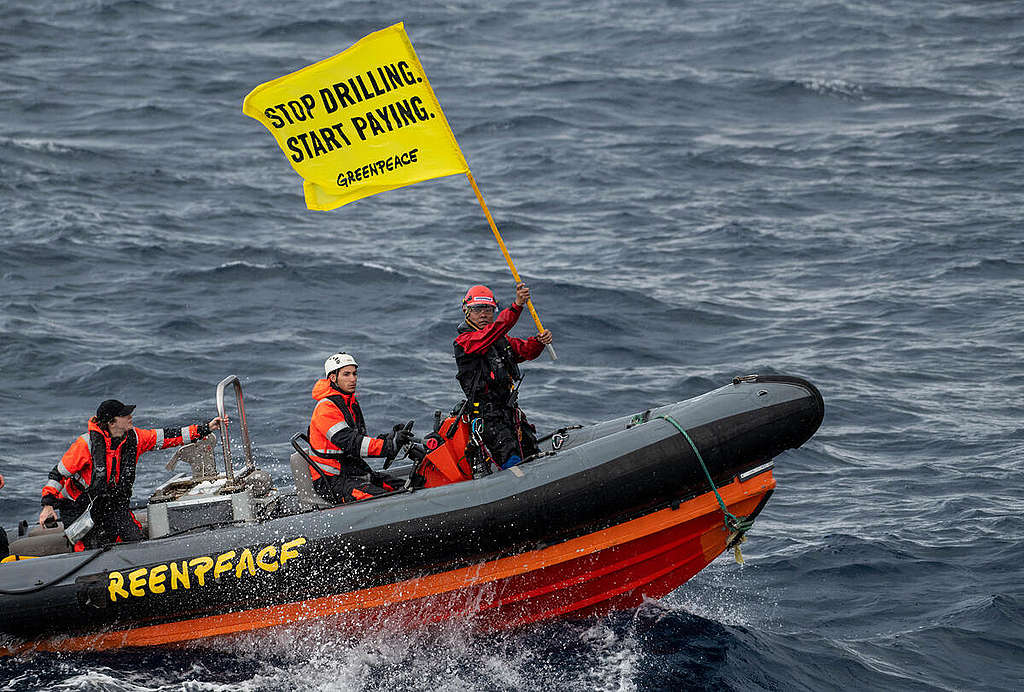 Shell has created 10 times the carbon pollution of the Philippines © Chris J Ratcliffe / Greenpeace
Shell has created 10 times the carbon pollution of the Philippines © Chris J Ratcliffe / GreenpeaceI felt compelled to join them because 20 years ago, I became a parent. This is daunting for anyone – suddenly a tiny child is entirely dependent on you. But it’s much scarier when you live in the Philippines. Every year brings more climate disasters and terrible devastation that I have personally witnessed.
Given how profoundly the fossil-fuelled climate crisis wrecks lives, I cannot comprehend how companies like Shell can continue with business as usual. Their deception is one of the biggest injustices in human history and it is galling that they refuse to acknowledge their complicity.
They knew about this problem long before many of us, and yet they continue to rob us of our future.
Over the last 50 years or so, Shell has created 10 times the carbon pollution of the Philippines.
But the question of who morally should pay for these costs has never been rightfully addressed.
No amount of money will ever make up for the lives lost and the devastation caused. But should the companies making billions in profits through their climate-wrecking business be forced to pay towards the climate loss and damage it has caused? For me, the answer is a resounding yes.
A few years ago, I had the chance to speak with officials from Shell. I asked whether they had children; they all said yes.
As a parent, I wondered what more it would take for them to react to the urgency of this crisis, and abandon outmoded fossil fuels. I desperately wanted them to explain why Shell continues regardless.
Power alone doesn’t seem a good enough reason. If climate change wipes us out, they will be powerless, and no amount of money will save them.
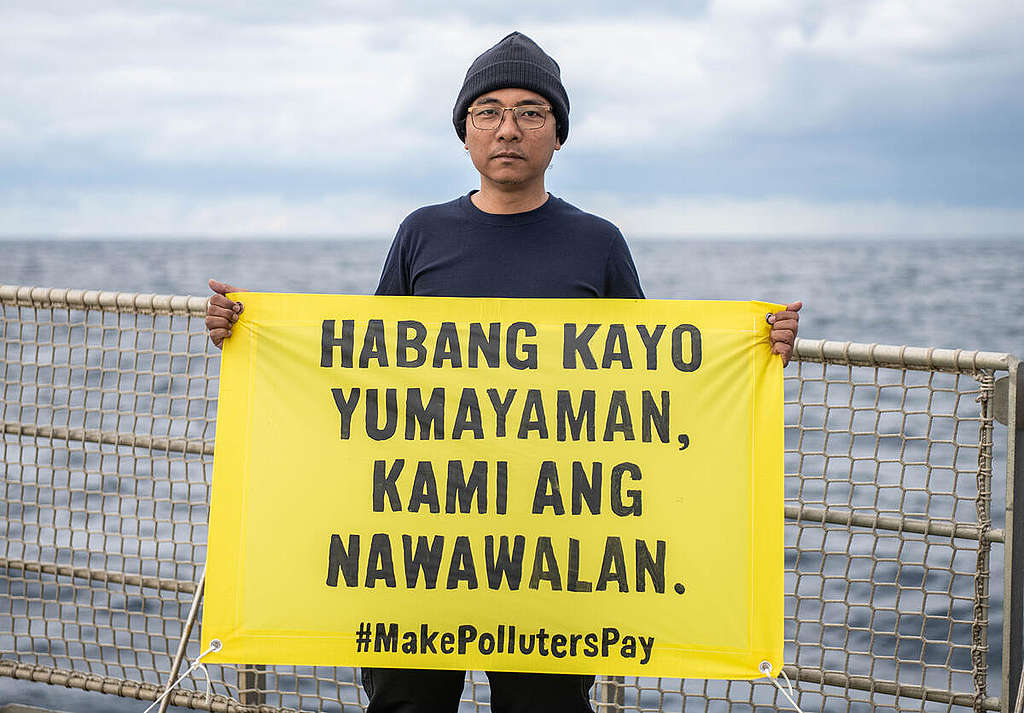 Yeb Saño, activist and Executive Director at Greenpeace Southeast Asia from the Philippines on board the Arctic Sunrise © Chris J Ratcliffe / Greenpeace
Yeb Saño, activist and Executive Director at Greenpeace Southeast Asia from the Philippines on board the Arctic Sunrise © Chris J Ratcliffe / GreenpeaceOur activists are occupying Shell’s vessel because we must. For our children, for the children of oil company executives. For those who have lost their lives in the Philippines, and all over the world.
I want to look my children in the eyes, and for them to know I am fighting for our future. Despite the devastation I’ve seen, I feel great joy to be part of the climate movement. I feel the profound hope of a sustainable future, and I feel proud to speak up against the false narrative peddled by the fossil fuel industry.
The Philippines has been ravaged, but I’m here to tell people: this is real, this is happening to us, and we need to fix it right now. Wherever you are in the world, this affects you.
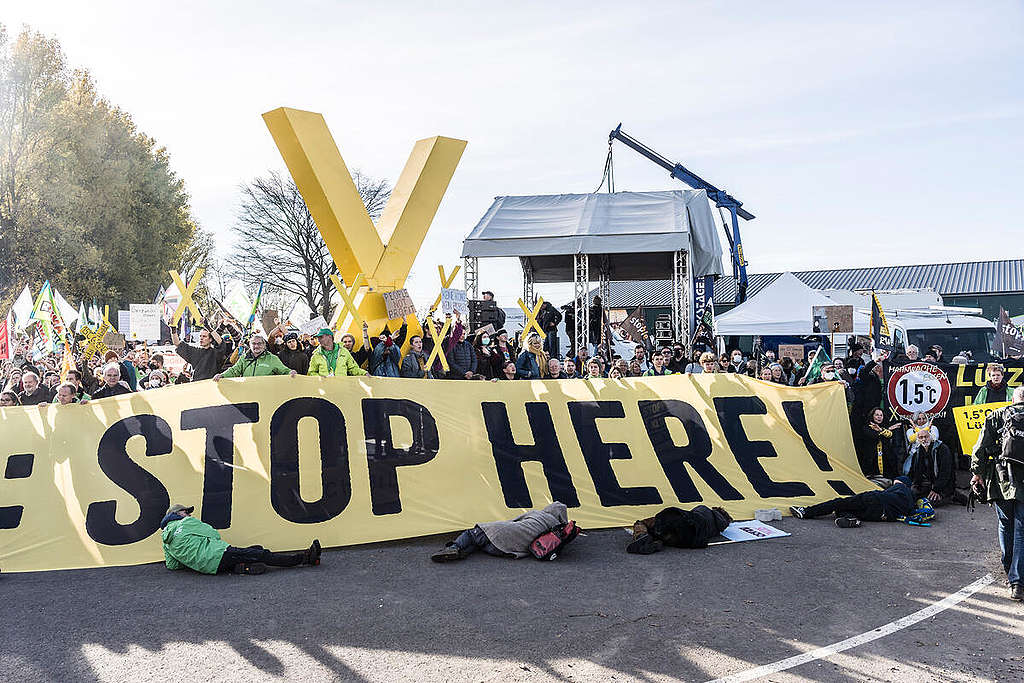
Join the call for climate justice. Add your name to demand that fossil fuel companies stop their climate-wrecking activities.
Change will need to be systemic, guided by science and justice. Governments must stop bending to the enormous wealth and power of fossil fuel companies, and prioritise our long-term survival.
Practically, we must stop these companies from extracting fossil fuels and start forcing them to pay for the damage caused. The solutions to the climate crisis are within our grasp. We now need to take hold of them with both hands.
There is no place in our world for companies that seek to distract; delay; or deter us in this mission. The world that so many of us are fighting for is there for the taking.
We know there is no time to lose. Together we will force them to stop drilling, and start paying.
This article was originally published by Metro on 8 February 2023.
Yeb Saño is part of the crew on board the Greenpeace International ship Arctic Sunrise, taking action against Shell as it heads for a major oil and gas field. Learn more about the action here.

 1 year ago
62
1 year ago
62
 (@greenpeace)
(@greenpeace)

